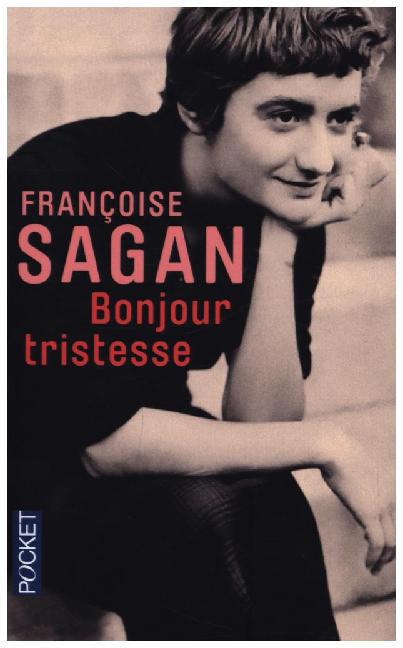
Françoise Sagan was
eighteen when Bonjour Tristesse was published. The precocity is mind-boggling.
How could she have written this? How could she have known?
Cécile, the narrator of the story, is
seventeen, on the cusp of adulthood. It is a difficult stage of growing up. Are
you a child or an adult? For a period, around that age, you could be either,
depending on circumstance. In moments of stress you revert to childishness; in
moments of calm you stretch your emotional responses, experiment with differing
perspectives. It can be a confusing time, disorientating, sometimes even
upsetting. For Cécile, her difficulties are compounded by the
fact that her mother is dead and her father is a philandering wastrel. During
their long summer holiday on the French Riviera, her father has invited his 29
year old lover, Elsa Mackenbourg, to join them and the three live a bohemian
existence which Cécile, knowing no
better, takes for normality. This idyll is thrown into disarray when Raymond
later invites another friend, the older and more mature Anne Larsen, to join
them. Anne is a friend of Cécile’s
late mother and she brings an element of sophistication to their ramshackle
lifestyle. Raymond proposes to her, she accepts, and from here Cécile’s difficulties begin to grow.
After being
treated as an adult and an equal by her father, Cécile
is shocked by and resentful of the controlling way that Anne begins to deal
with her. She is forced to study for her exams. She is treated as a child. She
is forbidden to meet Cyril, the young man whom she has been seeing during the
summer. She concocts a plan. Disaster ensues.
The novel
focuses on Cecile’s intellectual growing pains. It is an irony that when she is
at her most immature she is treated as an adult and as she matures she is
increasingly treated as a child. This, of course, adds to her confusion and
resentment. One feels for her: she is, unknowingly, at a massive disadvantage,
with a feckless father who is intent solely on indulging his own selfish
tendencies. She has no-one on whom to model herself until Anne appears and, not
surprisingly, rather than learn from this intelligent and wise woman, instead
she rebels against her imposed authority. Even now, all might not be lost if
only her father could derive some sense of paternal competence but that is
beyond Raymond. Cécile is let down. Everybody
is let down.
The novel is
beautifully written. The prose is uncluttered and simple, yet lyrical and
evocative. It is very short, and it does not strain for great depth, but it
explores the pain of youth, its confusions, its delusions, its sense of
timelessness. It is an exploration of love, and we know what a difficult
emotion that can be. In this novel there is only one true and honest love, that
of Anne for Raymond. All the other permutations – Cécile and Cyril, Cyril and Cécile, Raymond and Elsa, Elsa and Raymond, Raymond
and Anne – they are only varying forms of delusion. Only one true love, then,
and in the end it is not sufficient to carry the day. Cécile
describes her tristesse as “her
realisation of the responsibility involved in exercising her freedom to make choices”.
Human beings are, indeed, free to make choices, but we are seldom very good at
it. In Sagan’s beautiful little novel, Cécile leads us to the enduring truth that,
with the advent of adulthood, we are generally forced to say hello to sadness.